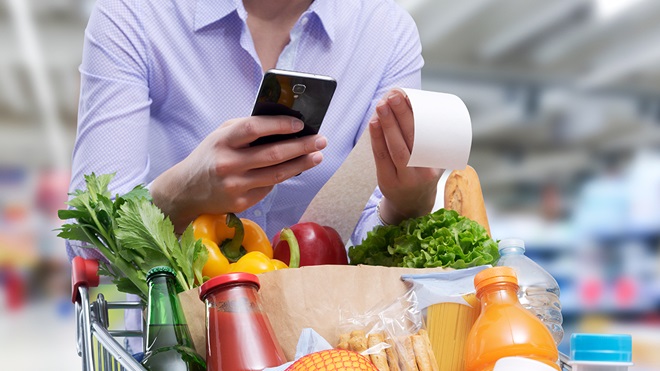The fundamental issue has become all too familiar for many Australian shoppers.
With Woolworths and Coles together controlling somewhere around 65% of the food and groceries market, we have little choice but to spend our dollars there.
The lack of competition means we're at their mercy.
But expecting the supermarket duopoly to play fair on pricing has turned out to be a case of wishful thinking. Nearly nine out of 10 Australians (88%) said they were worried about the cost of groceries in a recent CHOICE national survey, and that's because food prices keep going up.
We stand firmly in the shopper's shoes, arguing that our two main supermarket chains routinely manipulate prices to the detriment of consumers
In our submission to the government's inquiry into supermarket pricing, we stand firmly in the shopper's shoes, arguing that our two main supermarket chains routinely manipulate prices to the detriment of consumers.
Their complex pricing methodologies lack both transparency and accountability.
For people and families on low incomes, the resulting high prices can mean having to choose between food on the table and other essentials, like medical care and electricity.
Promotions minus the savings
The supermarkets often engage in various forms of pricing trickery, which has boosted their substantial profits in the midst of a cost-of-living crisis.
In late 2023, for instance, CHOICE lodged a complaint with the ACCC about Coles' "locked prices" promotion. Apparently the locks had come loose, because we tracked the prices going up.
The supermarket apologised and refunded customers, but it was just the latest example of the tactics deployed by both supermarkets. They're aimed at convincing us that we're getting a better deal than we actually are, but we're catching on. In a survey of CHOICE supporters, 83% said some Coles and Woolworths "specials" or other promotions leave you guessing at whether you're getting a genuine discount.
"You look down an aisle with tickets of different colours which are so confusing," one supporter told us. "All I want to know is if the price is acceptably discounted. The original prices shown on discount tickets are so small you often have to examine the ticket with a magnifying glass."
People are sick of feeling tricked by specials that aren't specials, and feeling pushed into membership programs and multi-buy deals where they end up buying more than they need
CHOICE senior policy and campaigns adviser Bea Sherwood
"Was/Now'"pricing is another favourite flimflam. It's when supermarkets drop the price from an artificial high point and call the new price a sale. Never mind that the product has been available at lower prices at various other times.
Products on "special" that cost the same as before the promotion is yet another example.
As one supporter told us, "we have seen lots of 'special' prices stuck over regular prices and they are the same. There's nothing special about the new price."
The added twist is that the supermarkets often point to these bogus promotions as an effort to make shopping more affordable.
"People are sick of feeling tricked by specials that aren't specials, and feeling pushed into membership programs and multi-buy deals where they end up buying more than they need," says CHOICE senior policy and campaigns adviser Bea Sherwood.
"This kind of behaviour from the major supermarkets is simply not acceptable and is particularly harmful in a cost-of-living crisis."
Our recommendations to government
Our submission makes a number of recommendations aimed at levelling the playing field for shoppers, including:
- Compelling major supermarkets to publish historical pricing information to allow consumers to track price changes over time.
- A ban on misleading promotional tactics.
- Strengthening and enforcing unit pricing requirements so consumers know what they're getting for their money.
- Mandatory standards for clear and consistent pricing information.
- Requiring supermarkets to prominently disclose the change in price or size of a product.
Watching prices climb higher and higher
CHOICE gave the Coles and Woolies duopoly a Shonky award in 2023 for the soundest of reasons.
While claiming to be doing their part to support consumers during a cost-of-living crisis, they did the opposite. Essential food items got more expensive across the board; pack sizes shrunk while prices went up.
"We have noticed that products are becoming smaller in volume, but the price has increased," one CHOICE supporter reported. "This applies to chocolate bars, baby powder, fruit and vegetables [and other items] where they reduce the volume but increase the prices."
It's criminal what they're doing to get money
CHOICE supporter
Another supporter told us "Cat food dry biscuits used to be 1.5kg and are now .8kg and we're paying more. Toilet paper used to come in nine rolls but now it's eight and we're paying the same. It's criminal what they're doing to get money."
Australian consumers have spoken. The duopoly says there's nothing to see. Now it's time for the government to take a close hard look.
"CHOICE is calling on the government to step in and force supermarkets to make their grocery pricing clear and fair," says Sherwood. "Consumers deserve fair and transparent pricing so that they can be sure they're actually getting a good deal when they do their shopping."
We're on your side
For more than 60 years, we've been making a difference for Australian consumers. In that time, we've never taken ads or sponsorship.
Instead we're funded by members who value expert reviews and independent product testing.
With no self-interest behind our advice, you don't just buy smarter, you get the answers that you need.
You know without hesitation what's safe for you and your family.
And you'll never be alone when something goes wrong or a business treats you unfairly.
Learn more about CHOICE membership today
Stock images: Getty, unless otherwise stated.



